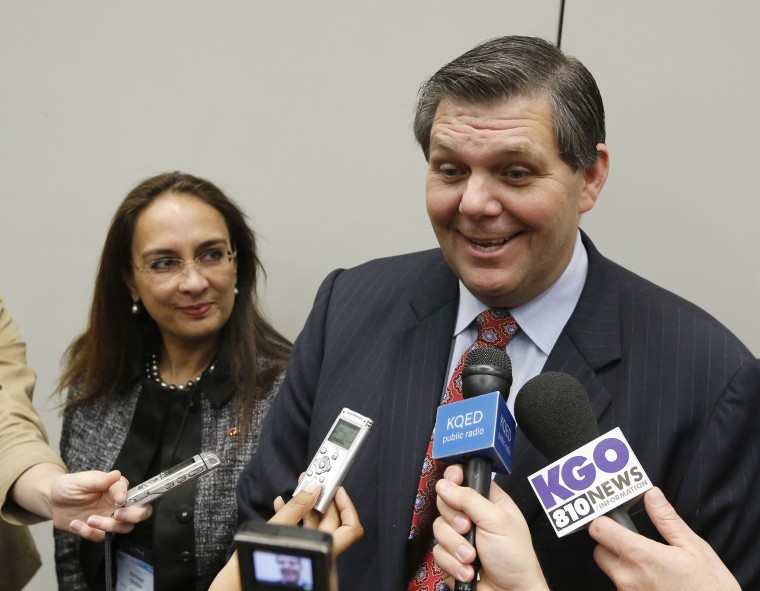When the last California House race of 2018 was called this week — the seventh Democratic pickup in the state, out of 40 for the party nationwide — Golden State Republicans were left to face a brutal set of numbers: In a state that's by far the nation's largest, with more than 39 million people and 55 electoral votes, its GOP representation in the House has dwindled to just seven.
Much of the outcome in California can be tied to President Donald Trump's toxicity among women and educated suburban voters, which played out across the country in the midterms this year. And all the House GOP losses in the state came in districts Hillary Clinton won in 2016, making them a particularly steep climb for Republican.
But the results still pointed to a staggering slide in fortune for the once-mighty California GOP, which has produced a litany of political giants over the years, including former Presidents Ronald Reagan and Richard Nixon and Gov. Arnold Schwarzenegger, who warned as early as 2007 that the state Republican Party was "dying at the box office."
Things have gotten markedly worse since then, and Jim Brulte, the outgoing chairman of the California Republican Party, offered a stark explanation as to why: "The proximate cause of 22 years of election losses are changing demographics and our inability to connect with non-white voters," Brulte, a former state Senate Majority Leader, told NBC News. He added, "A president with an approval rating in the low 30s in your state can't be all that helpful to you."
California officially became a majority-minority state in 2014, when its Hispanic population inched ahead of the white population for the first time. But the state's voters began fleeing the GOP well before then: In 1994, 25 of the state's then-52 House members were Republicans; by 2016, the GOP delegation had dropped to 14. This year, that number was cut in half.
Among those left is House Republican leader Kevin McCarthy, one of Trump's closest allies on Capitol Hill. McCarthy has been a stalwart backer of many of the president's anti-immigration measures, including his proposed border wall. McCarthy also successfully pressed his California GOP colleagues to vote in favor of other Trump priorities that were extremely unpopular at home, including the repeal of the Affordable Care Act and the Trump/GOP signature tax law, which wiped out most deductions for the California's high state and local taxes.
Just two California Republicans, Reps. Darrell Issa and Dana Rohrabacher, voted against the tax measure. Rohrabacher still lost his re-election bid to Democrat Harley Rouda, while Issa is retiring and being replaced by Democrat Mike Levin.
In a statement to The Los Angeles Times, McCarthy pointed to a flood of Democratic money into the state, which caused Republicans to be vastly outspent. But, he added, "There is no question there is work to be done after these election results and we intend to grow."
For his part, outgoing House Speaker Paul Ryan, R-Wisc., sought to explain the losses in California by pointing to the state's vote-counting system. Millions of absentee and provisional ballots in the state were left to be tallied after Nov. 6, and the results grew exponentially worse for Republicans as the tabulation continued into December.
"It defies logic to me," Ryan said of the system at an election postmortem event held by the Washington Post. He singled out the practice of "ballot harvesting" in California and other states, where individuals or groups go door to door collecting absentee ballots from people who haven't turned them in yet.
Brulte, for his part, said any effort by the national GOP to pin blame on the state's election system or outside spending by liberal groups was ignoring mounting problems the party faces both in California and nationwide.
"Any Republican who thinks California is an outlier is not paying attention to the dramatic changes that are occurring demographically across the country," Brulte said. "They are accelerating in California and they are coming to a neighborhood near you."
